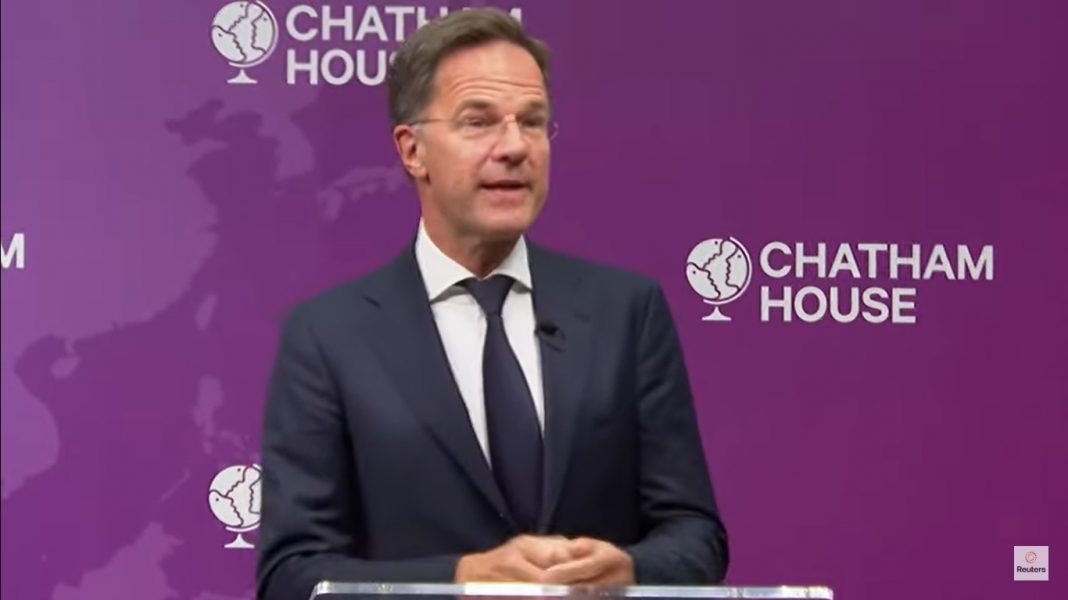WASHINGTON: Speaking at Chatham House in London, North Atlantic Treaty Organization (NATO) Secretary General Mark Rutte signaled the alarm over China’s fast-tracked military growth and its tightening coalition with Russia, Iran, and North Korea.
According to the latest South China Morning Post (SCMP) report, Rutte, the former Dutch prime minister, cautioned that China’s goals extend far beyond its borders and pose a direct threat to international security, advising NATO to expand and fortify its partnerships in the Indo-Pacific.
“What we see at the moment is an enormous build-up in China of their military capabilities,” he said, alluding to the People’s Liberation Army’s nautical supremacy, which is by now the biggest in the world. With its battle strength projected to increase to 435 ships by 2030 and nuclear missiles possibly exceeding 1,000, Rutte said NATO must not brush it off or ignore it.
The Pentagon has assessed beforehand that China’s shipbuilding capability is more than 200 times that of the U.S., highlighting the rapidity and extent of Beijing’s military development.
Alliance of autocracies
Rutte did not beat around the bush in depicting China’s position with what he called a “really awful foursome”—Russia, Iran, North Korea, and China itself. He accused Beijing of supporting Russia’s combat in Ukraine by providing technology that aids in rebuilding the Russian army, assertions that China has continually refuted.
Beijing contends that it has not supplied assistance and claims that it continues to have strict and tight controls over dual-use exportations. Thus far, the European Union has fined Chinese businesses suspected of providing paraphernalia and resources that may back up Russia’s military-industrial complex.
Rutte stressed that these dealings are not remote regional matters but a component of a worldwide mesh of volatility. “We cannot think that there is one theatre, which is the Euro-Atlantic theatre,” he said. “This is all interconnected with what is happening in the Pacific.”
Indo-Pacific partnerships and defence spending on the rise
Rutte’s comments come as NATO intensifies its reach to Indo-Pacific partners, including Japan, South Korea, Australia, and New Zealand—countries that he said are “really worried about what’s happening in the Pacific.”
As NATO aims for a more comprehensive universal role, China has articulated forceful disapproval of what it views as NATO’s “eastward expansion.” A Chinese foreign ministry spokesman warned that the Asia-Pacific does not need “an Asia-Pacific version of NATO.”
As tensions intensify across numerous theatres, NATO’s message under Rutte is clear-cut—the pressures and coercions are worldwide, so the coalition must be too.

